Flashcards For Vocabulary Teaching
We have hundreds of flashcards that you can use in the classroom to illustrate, to name just a few, different tenses, verbs, adjectives, prepositions and a whole host of grammatical points.
All flashcards are in PDF format. Most of the flashcards use an image on one page with a word/words printed on the other. Some have an image on each page without words. More details of this can be found in the description of each set. Where there are words printed on a second page, you will have the choice to use that page or not.
The flashcards come in two size formats - A4 (30cm x 21cm, 12in x 8in) and a larger A3 size (42cm x 30cm, 16.5in x 12in).
For more information on printing and using flashcards, go to our Flashcard Tips page.
Comparatives | Have you ever...? | How long...? | Continuous tenses | Present Perfect (changes)
Food & Drink | Household Objects | Animals | Outdoors | Weather
Comparatives / Adjectives
These flashcards come in pairs without writing. They can be used to practice basic adjectives or, by using the two together, comparative adjectives such as:
This girl's hair is longer than that girl's hair.
This man is younger than that man.
Cheaper / More expensive - A4 | A3
Fatter / Slimmer - A4 | A3
Friendlier / More Unfriendly - A4 | A3
Nicer / More horrible - A4 | A3
Older / Younger - A4 | A3
Shorter hair / Longer hair - A4 | A3
More tired / More energetic - A4 | A3
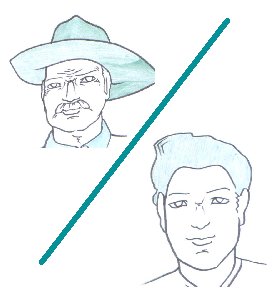
Have you ever...?
Can be used to practice present perfect/past simple tenses.
(Teacher shows flashcard)
Student A: Have you ever been to Paris?
Student B: Yes, I have.
Student A: When did you go?
Student B: I went there three years ago.
The second page for each PDF file shows a prompt for the student that can be used by the teacher as an aid.
Been to Paris? - A4 | A3
Been to Russia? - A4 | A3
Been scuba diving? - A4 | A3
Been to Italy? - A4 | A3
Been to New York City? - A4 | A3
Drunk vodka? - A4 | A3
Made a cake? - A4 | A3
Made a parachute jump? - A4 | A3
Met somebody/anybody famous? - A4 | A3
Played tennis? - A4 | A3
Ridden a horse? - A4 | A3
Ridden a motorbike? - A4 | A3
Used a jetski? - A4 | A3
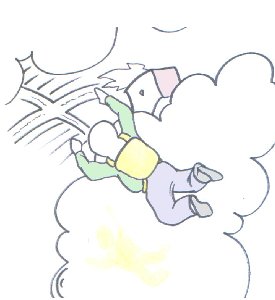
How long...?
These flashcards can be used to practice both present perfect simple and present perfect continuous. Practice of for/since time markers are also possible: the second page of each PDF file includes time expressions such as "six months" or "1988". Remember, you can always change around the images and the time expressions because they are on separate pages.
Teacher: Maria, tell me about this man.
Student: He's had a beard for a long time.
Teacher: How long has he had a beard for?
Student: Since 1977.
...has she been able to swim? - A4 | A3
...have they been married? - A4 | A3
...has she been queen? - A4 | A3
...has this bridge been here? - A4 | A3
...has she been cleaning the windows? - A4 | A3
...has he had a beard? - A4 | A3
...has he had a watch? - A4 | A3
...have they been living in Paris? - A4 | A3
...has she been reading the book? - A4 | A3
...has she been studying? - A4 | A3
...has she worked in the bank? - A4 | A3
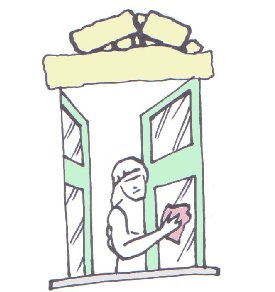
Present or Past Continuous
This set of flashcards can be used to work on the continuous tenses - either past continuous or present continuous. The second page of each PDF file includes the verb in the infinitive form. The third page has the verb in the continuous form.
Present Continuous
Teacher: What is John doing, Sarah?
Student: He is reading a book.
Teacher: What type of book is it?
Student: It's something for his studies.
Past Continuous
These can equally be used for the past continuous simply by placing the question in the past: What was John doing at 6 p.m. yesterday evening?
You can also use two images together to talk about two concurrent actions.
Teacher: What was Mike doing at 7 o'clock?
Student A: He was shaving in the bathroom.
Teacher: And what was Maria doing at the same time, Marco?
Student B: He was doing a jigsaw puzzle.
He is/was doing a puzzle - A4 | A3
He is/was drinking a coffee - A4 | A3
He is/was packing his suitcase - A4 | A3
He is/was playing pool - A4 | A3
He is/was playing the saxophone - A4 | A3
He is/was reading a book - A4 | A3
He is/was reading a newspaper - A4 | A3
He is/was riding a horse - A4 | A3
He is/was shaving - A4 | A3
He is/was using a computer - A4 | A3
She is/was brushing her teeth - A4 | A3
She is/was cleaning a window - A4 | A3
She is/was doing the shopping - A4 | A3
She is/was drinking Champagne - A4 | A3
She is/was playing the guitar - A4 | A3
She is/was playing tennis - A4 | A3
She is/was speaking to her neighbor - A4 | A3
She is/was speaking on the telephone - A4 | A3
She is/was watching TV - A4 | A3
They are/were listening to music - A4 | A3
They are/were playing cards - A4 | A3
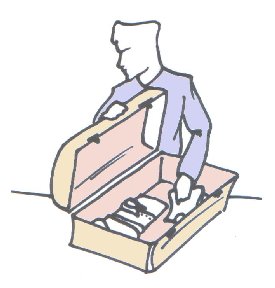
Present Perfect - Changes
Each of these PDF files contains two pages with only one difference between them. This is to elicit use of the present perfect tense, both active and passive, to describe changes:
She has started wearing glasses.
They have had another baby.
A fence has been built.
Clearly, these cards, as with many of the other sets, can be used to practice many more grammar and vocabulary points.
The boat has been taken. - A4 | A3
The bridge has been destroyed. - A4 | A3
The door has been painted. - A4 | A3
A fence has been built. - A4 | A3
He has grown a beard. - A4 | A3
The school has been closed. - A4 | A3
She has lost weight. - A4 | A3
She has started to wear glasses. - A4 | A3
They have had another child. - A4 | A3
Two trees have been cut down. - A4 | A3
The window has been smashed/broken. - A4 | A3
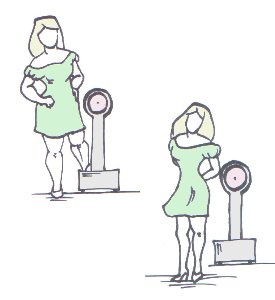
Comparatives | Have you ever...? | How long...? | Continuous tenses | Present Perfect (changes)
Food & Drink | Household Objects | Animals | Outdoors
